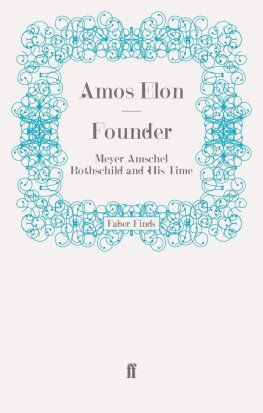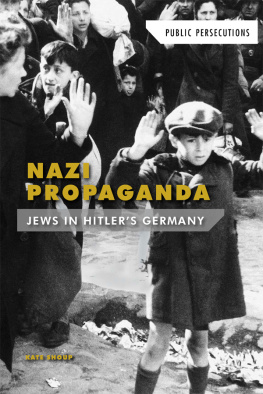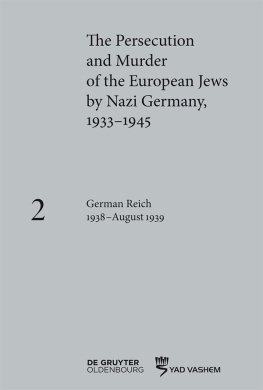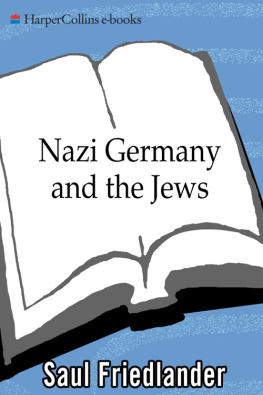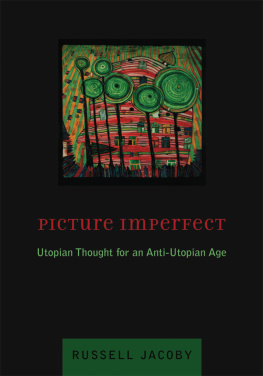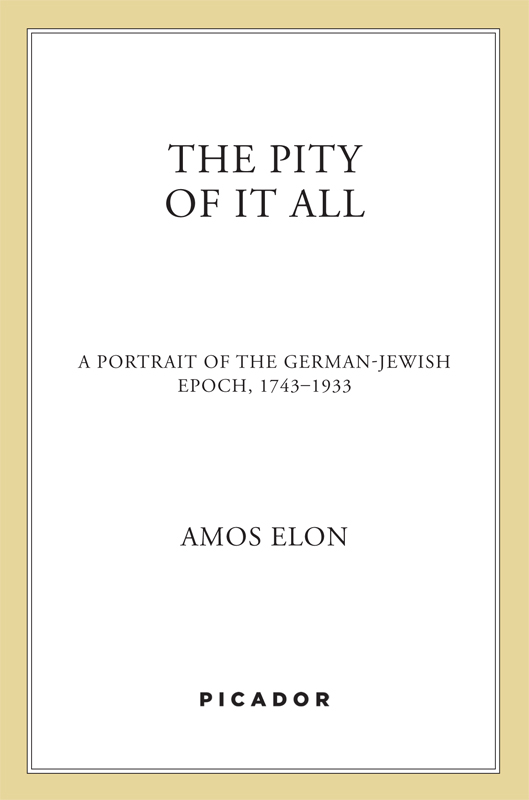
Contents
It is not what they built. It is what they knocked down.
It is not the houses. It is the spaces between the houses.
It is not the streets that exist. It is the streets that no longer exist.
It is not the memories which haunt you.
It is not what you have written down.
It is what you have forgotten, what you must forget.
What you must go on forgetting all your life.
And with any luck oblivion should discover ritual.
You will find out that you are not alone in the enterprise.
Yesterday the very furniture seemed to reproach you.
Today you take your place at the Widows Shuttle.
J AMES F ENTON , A German Requiem
Introduction
I N the fall of 1743, a fourteen-year-old boy entered Berlin at the Rosenthaler Tor, the only gate in the city wall through which Jews (and cattle) were allowed to pass. The boy had arrived from his hometown of Dessau, some one hundred miles away in the small independent principality of Dessau-Anhalt. For five or six days he had walked through the hilly countryside to reach the Prussian capital.
We do not know whether he was wearing shoes; it is more likely that he was barefoot. The boy, later famous throughout Europe as the philosopher Moses Mendelssohn, was frail and sickly, small for his age. Early years of poverty had left him with thin arms and legs, an awkward stutter, and a badly humped back. The hump may have been the result of a genetic disorder (the most severe type, according to modern medical textbooks, is thought to affect mostly Jews of Central European origin and is often accompanied by a stutter), or it may have been caused by rickets, a common childhood disease at the time. The boys overall appearance would have moved the cruelest heart to pity, claimed one contemporary, and yet his face was remarkably attractive. Under the finely arched forehead, his eyes were deep and sparkling, his nose, cheeks, lips, and chin delicate and well-formed.
The boy was all but penniless and traveled alone, carrying his few possessions in a satchel on his hunched back. In 1743, the movements of Jewsmany of whom were wandering peddlerswere tightly regulated and controlled. Only a limited number of rich Jews (and, occasionally, a scholar) were allowed to settle in Berlin, but peddlers were barred. Jews requesting admission to Berlin, even for only a few days, were sternly interrogated as to their background and purpose. If temporarily admitted, they were verzollt , that is, subject to a commodity tax, as though they were merchandise, at the same rate as imported Polish oxen. The gatekeepers task, according to one report, was to stop and register all incoming Jews, keep an eye on them during their stay, and expel the foreign ones as soon as possible.
Prussia, under the enlightened despot Frederick II (later known as the Great), was, relatively speaking, more tolerant than most other German states; the official disposition was to regard most Jews (and all serfs) as less than human. The gatekeepers surviving log for 1743, the year Mendelssohn trudged through the Rosenthal Gate, includes this notation: Today there passed six oxen, seven swine, and a Jew. Several versions of what transpired during Mendelssohns interrogation have been passed down. According to one, the gatekeeper teased the young hunchback, suspecting him of being another peddler. Jew, what are you selling? I may want to buy something from you. Mendelssohn is said to have responded, Youll never want to buy anything from me. Out with it! Tell me what you deal in, the gatekeeper insisted. In r r reason! the boy stuttered. According to another account, Mendelssohn was asked what he wanted in Berlin. His answer: To learn.
* * *
B OTH versions are apocryphal, yet they sum up, as such stories often do, the main facts of the case. At fourteen, Mendelssohn was a promising young Talmudic scholar. His former teacher was now a rabbi in Berlin and had given his consent for Mendelssohn to attend his religious seminary. The boys passage from Dessau to Berlin was as through a time machine, a journey across centuries, from the hermetic insularity of the medieval ghetto into which he was born to the relative enlightenment of eighteenth-century Berlin. Here, Frederick II, upon his coronation as king of Prussia only three years earlier, had proclaimed the reign of reason and invited Voltaire to stay with him as chamberlain. In Fredericks eyes all religions were equally false and equally useful politically. All religions must be tolerated, Frederick declared (the first European ruler to do so formally). Every man may seek spiritual salvation in his own manner. With regard to the role of authority, he decreed that the exchequer must only see to it that none would injure the others. There was, of course, no freedom of speech in Prussia, not even on the subject of religion, but disrespect toward religious practice was punished only mildly. In France, more than twenty years later, the nineteen-year-old Chevalier de la Barre would still be tortured by inquisitors and executed for failing to doff his hat at a passing religious procession.
At the time of his arrival, Mendelssohn knew only Hebrew and Judendeutsch, a raw medieval German dialect mixed with Hebrew. German suffixes attached to Hebrew verbs produced the infinitives; the limited, rudimentary vocabulary of Judendeutsch permitted only the simplest exchanges. On the rare occasions when it was written, Judendeutsch was spelled in Hebrew letters read from right to left. Non-Jews derided it as a mongrel and barbaric dialect, a form of mauscheln, whining, the accents of an unpleasant tongue (Goethe). Mendelssohns education had been exclusively religious. He was still unable to speak German or read a German book. Less than two decades later, almost entirely self-taught, he had become a renowned German philosopher, philologist, stylist, literary critic, and man of letters, one of the first to bridge the social and cultural barrier between Jews and other Germans.
His life suggests a saga not only intellectual but human and dramatic. No fabulist would have cast this stuttering ghetto hunchback as the central character in a unique drama of language and Kultur. Mendelssohns great ambition was to end the age-old social and intellectual isolation of Judaism, some of which had become self-imposed. In some ways he fully succeeded. His impact on his time was considerable. A recent guidebook to the city of Berlin goes so far as to claim that, apart from the modest attempts of a few forgotten writers and the founding of the Prussian Academy of Sciences by Leibniz in 1695, the history of literature in Berlin begins on an autumn day in 1743 when a fourteen-year-old Talmudic student named Mendelssohn entered the city through the gate reserved for Jews and cattle.
As a religious thinker he preached a doctrine of reason that, as first expounded by the great Maimonides in the twelfth century, had long been suppressed by German rabbis as heretical. In Mendelssohns view, God was not a hypothesis, a logical postulation, as later Jewish theologians would claim; rather, reason itself was a gift from God. Mendelssohn became the father, albeit inadvertently, of modern Reform Judaismhe himself remained traditionally devout and observant throughout his life. He was as passionate about language (becoming fluent also in French, English, Hebrew, Greek, and Latin) as about German literature, and for a man of his time and place, passionate about social justice as well: he wished he could turn Jewish boys into craftsmen and serfs into free peasants.


